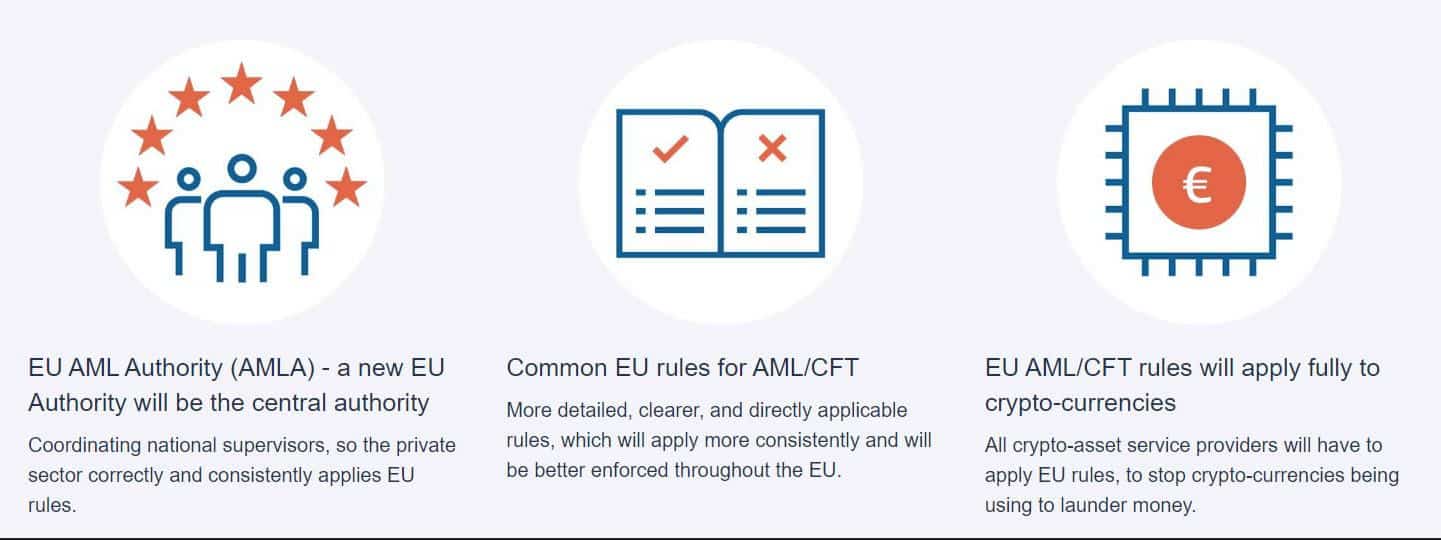Ireland is about to set its ship in proper order as the European Union readies more stringent requirements around its Anti-Money Laundering (AML) regulations for crypto companies. Under a piece of emergency legislation being prepared by Finance Minister Jack Chambers, the news laws are expected to have an impact on Ireland’s approaches towards tokens and cryptocurrency. They will be introduced on December 30, 2024, one step at a time, and Ireland wants to get ahead of the game by having local compliance in place before then.

EU’s Upcoming AML Standards: What They Entail
The AML/CFT Act from the EU contains very strict regulations implemented to fight against money laundering and terrorist financing, particularly towards virtual assets. Crypto-asset service providers (CASPs), like exchanges, will now have to meet more stringent due diligence standards. These responsibilities include better identity checks, further transaction monitoring, and upgraded red flags for suspicious activities to the fuelling authorities. There will also be a 10,000 euro cap on cash transactions aimed at deterring illegal financial activities.

A new authority, the Anti-Money Laundering Authority (AMLA), will be responsible for overseeing compliance across member states. Based in Frankfurt, the AMLA is tasked with standardising AML measures across Europe, ensuring a consistent regulatory environment that fosters transparency and safety within the digital asset sector.
Ireland’s Approach to Crypto Regulation
Ireland is one of the first countries to adopt crypto rules. After the European Market for Token Currency (MiCA) Regulation was launched in June 2023, this country is now eager to implement these regulations and make access to financial services more democratic through digital innovation. Central Bank of Ireland Deputy Governor Derville Rowland emphasised the country’s commitment to setting an example for safe financial innovation. MiCA, according to Rowland, is the exact sort of structure that can offer a middle ground between traditional finance and digital asset markets while expanding financial inclusivity.
The Minister of Finance Chambers’ recent proposal exemplifies this focus. But by updating its crypto rules today, Ireland is hoping to prevent the rest of its financial sector being compliant and internationally uncompetitive. This legislation is urgent because it addresses the concern that once applications of AML/CFT within European Union are enforced; there will be risk around regulatory gaps.

EU-Wide Impact on the Crypto Sector
This new standardisation of AML regulation across the 27 member states will mark a significant change for crypto. Divergent practices between the various countries meant that until recently a fragmented compliance approach prevailed within the EU. A unified rulebook would mean that requirements were the same company from country to another and businesses could operate in a group of countries, with one set in stone guideline.
However, that will also require the crypto firms to upgrade their compliance infrastructure. Entities that act as crypto exchanges, wallet providers, or custodial services are required to implement strict KYC (Know Your Customer) procedures and keep transaction logs, which can be sent upon request by regulators to trace the existence of illicit activity. While the rules are tough and have been described as archaic by some industry representatives, they were promulgated to make digital asset trading safer because it has come under fire for enabling illegal transactions.
![]()
Ireland’s Pre-emptive Measures and the Future of Crypto
The swift nature in which Ireland has put these urgent regulations in place further signifies the growing fintech arena taking shape within its borders and outlook to become a range-topping country for digital finance that is both safe & sound. It may show other member states what is possible when framing the new EU standards into national laws. Ireland moving swiftly in this direction signifies its determination to safeguard the integrity of Irish financial markets as well as strengthen a secure regulatory environment for innovation.
The Final Thoughts
The choice of Ireland to speed up the introduction of fresh crypto laws in advance of the EU AML/CFT Act is an indication that it would be better if a unified approach were applied to managing digital assets. However, as Europe moves forward with new measures to tackle financial crime, nations like Ireland are leading by example and getting ready early so the industry can stay ahead in both compliance and competition.
MiCA was introduced earlier this year, which, together with these future AML directives, means that the European digital asset world is poised for a big change. For Ireland, that could mean an opportunity to take a leadership role in shaping the future of digital finance across the EU, not just strictly complying with any regulatory changes.
Drop your thoughts with TheBITJournal in the comments on Twitter, LinkedIn, and the Telegram channel.





























